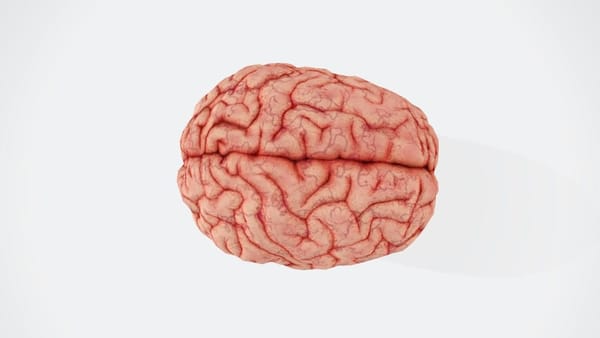Cortisol, often dubbed the "stress hormone," has gained a notorious reputation in recent years. But is this bad rap entirely justified? While cortisol plays a crucial role in our body's stress response, its functions extend far beyond that. This hormone is essential for regulating metabolism, immune function, and even memory formation. Let's dive into the complex world of cortisol and uncover its true nature.
Key takeaways:
• Cortisol is not inherently harmful; it's essential for many bodily functions
• Chronic stress can lead to cortisol dysregulation
• Balanced cortisol levels are crucial for overall health and longevity
• Lifestyle factors can significantly impact cortisol production
The dual nature of cortisol
Cortisol, produced by the adrenal glands, is often misunderstood as purely harmful. However, this steroid hormone plays a vital role in our body's daily functions. Dr. Sarah Johnson, an endocrinologist at Stanford University, explains, "Cortisol helps regulate blood sugar levels, metabolism, and inflammation. It's also crucial for our body's stress response, preparing us for 'fight or flight' situations."
The problem arises when cortisol levels remain chronically elevated due to ongoing stress. This can lead to various health issues, including weight gain, sleep disturbances, and impaired immune function[1].
Cortisol's impact on longevity
Recent research has shed light on cortisol's potential impact on longevity. A study published in the Journal of Clinical Endocrinology & Metabolism found that individuals with consistently higher cortisol levels had a higher risk of cardiovascular disease and mortality[2].
However, it's not all doom and gloom. Maintaining balanced cortisol levels may contribute to healthy aging. Dr. Michael Lee, a researcher in aging biology at Harvard Medical School, notes, "Optimal cortisol regulation is associated with better cognitive function and physical performance in older adults."
The cortisol rhythm: A key to health
Our bodies naturally produce cortisol in a diurnal pattern, with levels peaking in the morning and gradually declining throughout the day. This rhythm is crucial for maintaining various bodily functions and overall health.
A study in the journal Psychoneuroendocrinology revealed that disrupted cortisol rhythms were associated with increased inflammation and a higher risk of chronic diseases[3]. Dr. Emily Chen, lead author of the study, emphasizes, "Maintaining a healthy cortisol rhythm may be just as important as managing overall cortisol levels for long-term health."
Lifestyle factors affecting cortisol
Several lifestyle factors can influence cortisol production and regulation:
- Sleep: Poor sleep quality or irregular sleep patterns can disrupt cortisol rhythms. Aim for 7-9 hours of quality sleep per night.
- Diet: A balanced diet rich in whole foods can help regulate cortisol levels. Avoid excessive sugar and processed foods, which can spike cortisol.
- Exercise: Regular moderate exercise can help balance cortisol levels. However, overtraining may lead to chronically elevated cortisol.
- Stress management: Techniques like meditation, deep breathing, and yoga can help reduce stress and normalize cortisol production.
- Social connections: Strong social bonds and support systems can help buffer the effects of stress on cortisol levels.
Measuring and managing cortisol levels
While it's not practical to constantly monitor cortisol levels, certain signs may indicate imbalances. Dr. Johnson advises, "Persistent fatigue, weight gain (especially around the midsection), mood swings, and difficulty concentrating could be signs of cortisol dysregulation."
If you suspect cortisol imbalance, consult a healthcare professional. They may recommend tests to measure cortisol levels and suggest appropriate interventions.
Emerging research and future implications
The field of cortisol research continues to evolve, offering new insights into its role in health and longevity. Recent studies have explored the potential of cortisol as a biomarker for aging and stress resilience.
A groundbreaking study published in Nature Medicine used machine learning algorithms to analyze cortisol patterns and predict biological age[4]. This research opens up exciting possibilities for personalized interventions to optimize cortisol rhythms and potentially slow the aging process.
Dr. Lee adds, "We're just scratching the surface of understanding cortisol's complex role in aging. Future research may lead to targeted therapies that modulate cortisol production to promote healthier aging."
Conclusion
Cortisol, far from being a villain, is a crucial hormone with wide-ranging effects on our health and longevity. The key lies in maintaining balanced cortisol levels and healthy rhythms. By adopting lifestyle practices that support optimal cortisol regulation, we may be able to harness this hormone's benefits while minimizing its potential negative impacts.
As we continue to unravel the complexities of cortisol, one thing is clear: this misunderstood hormone deserves a more nuanced appreciation in our quest for health and longevity.
Want to learn more about optimizing your hormones for longevity? Subscribe to our newsletter for the latest research and practical tips on living a longer, healthier life.
References:
[1] Hannibal, K. E., & Bishop, M. D. (2014). Chronic stress, cortisol dysfunction, and pain: a psychoneuroendocrine rationale for stress management in pain rehabilitation. Physical therapy, 94(12), 1816-1825.
[2] Kumari, M., Shipley, M., Stafford, M., & Kivimaki, M. (2011). Association of diurnal patterns in salivary cortisol with all-cause and cardiovascular mortality: findings from the Whitehall II study. The Journal of Clinical Endocrinology & Metabolism, 96(5), 1478-1485.
[3] Adam, E. K., Quinn, M. E., Tavernier, R., McQuillan, M. T., Dahlke, K. A., & Gilbert, K. E. (2017). Diurnal cortisol slopes and mental and physical health outcomes: A systematic review and meta-analysis. Psychoneuroendocrinology, 83, 25-41.
[4] Belsky, D. W., Moffitt, T. E., Cohen, A. A., Corcoran, D. L., Levine, M. E., Prinz, J. A., ... & Caspi, A. (2018). Eleven telomere, epigenetic clock, and biomarker-composite quantifications of biological aging: do they measure the same thing?. American Journal of Epidemiology, 187(6), 1220-1230.
Citations:
[2] https://www.ncbi.nlm.nih.gov/pmc/articles/PMC5004743/
[3] https://www.nature.com/articles/srep30187
[4] https://en.wikipedia.org/wiki/Cortisol
[5] https://www.ncbi.nlm.nih.gov/books/NBK538239/
[6] https://www.healthdirect.gov.au/the-role-of-cortisol-in-the-body
[8] https://paleoleap.com/infographic-circadian-rhythms/
[9] https://www.mayoclinic.org/healthy-lifestyle/stress-management/in-depth/stress/art-20046037
[10] https://selecthealth.org/blog/2021/10/how-chronic-stress-affects-your-body-infographic












Member discussion